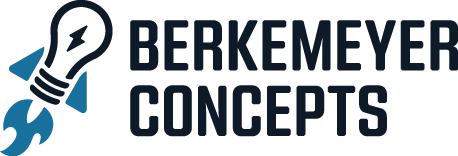The key is not to prioritize what’s on your schedule, but to schedule your priorities.
Stephen Covey
Developing custom software is complicated. It’s common for projects to get off track, take longer than expected, and/or not deliver what is needed. Yet, there is a relatively simple process to help ensure your projects succeed.
Would you rather talk with someone about this? Schedule a free call to talk about your custom software project.
Five Expert Disciplines for Custom Software Success
Make these disciplines the foundation of your custom software development process to enhance your chance of success.
- Begin with the end in mind
- Make Project Management a priority
- Embed quality assurance in the process
- Clear communication is critical
- Make a long-term commitment
Begin with the end in mind
The success of a custom software development project starts with understanding why you’re creating it in the first place. Ultimately the software must propel your business forward. It should earn your company more than it costs to develop.
Start by gathering input from stakeholders and target users to understand what your custom software must achieve. Use the information you gather to create a list of specific outcomes stakeholders want to achieve with the software. These outcomes comprise the backlog of “stories” your custom software should support. If there are performance requirements, add those to your list as well.
Make Project Management a Priority
Effective project management is essential to the success of custom software development. The project manager should create a plan, monitor progress, and manage potential risks.
The plan will prioritize the requirements based on stakeholder input and business objectives. The project manager will communicate with stakeholders regularly to ensure they know the project status and have the details needed. When issues arise, the project manager will contact the affected stakeholders and work with them to adjust the plan accordingly.
Embed Quality Assurance (QA) in the Process
Ensuring the quality of your custom software is critical. Users have little tolerance for software they cannot trust. A simple plan for software QA includes the following:
- Include unit and integration tests in your development cycle.
- Add security tests to your automated testing and regression testing plans.
- Require all unit and integration tests to pass before new code is merged into the codebase.
- Have regression test plans and execute them before each software update is deployed to production.
Clear Communication is Critical
Clear and effective communication is essential to ensure all team members are informed and on the same page. This includes regular meetings, status updates, and documentation.
Have regular status updates, such as Daily Standup Meetings (DSM), to keep each team member accountable for their piece of the project. Also, communicate the project status regularly so that all stakeholders stay informed. Weekly or bi-weekly project “Report Out” meetings where all stakeholders attend and the development team demonstrates the updates made to the project help keep the project feedback loop tight.
Make a Long-Term Commitment
A software development project doesn’t end when the software is deployed. It’s important to have a plan for ongoing maintenance and support to ensure that the software continues to meet the needs of the business over time. Be sure your business reviews user feedback regularly. Also, plan to keep the libraries and frameworks your software is built up-to-date.
Conclusion
In summary, ensuring the success of a custom software development project requires a combination of several key disciplines. Focusing on these disciplines will greatly reduce the risks that cause most software development projects to get off track.
Schedule a Free Consultation
We’ve helped dozens of companies like yours build high-quality software designed to scale and grow. Let’s have a call to discuss your project and ensure you’ve got a solid plan.
We work closely with you and your team to design custom software that supports your business objectives.
OUR NO-RISK PROPOSITION
Schedule a free call. We will listen to your needs and give our advice. That’s it. There’s no cost and no further obligation. We promise.
- You schedule an appointment.
- Describe your project and ask questions.
- We share expert advice from our 35+ years of experience.
Yes, it’s really that simple.


